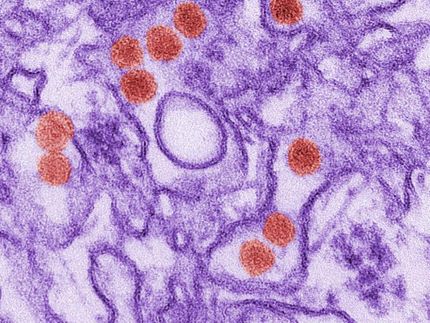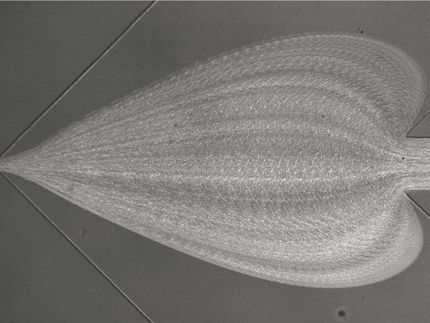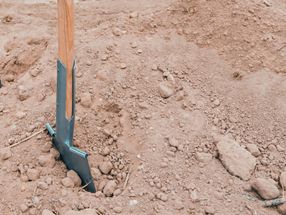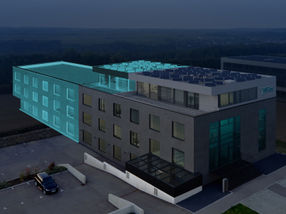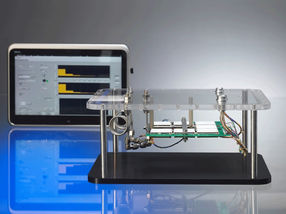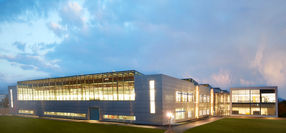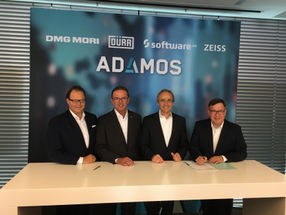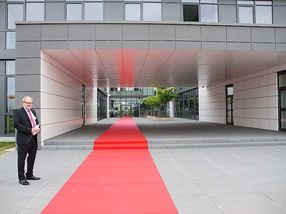Roche lays the foundation for the diagnostics production of the future in Germany
Investment of more than 600 million euros in a high-tech production center - Roche's largest single investment in Germany to date
Roche lays the foundation stone for one of Europe's most modern production centers for high-quality diagnostic input materials on the campus of its biotechnology center in Penzberg, Upper Bavaria. The company is investing more than 600 million euros - Roche's largest single investment in Germany. In future, more than 450 essential input materials for diagnostic tests for patient care will be manufactured here in a highly automated and intelligent production facility. With the new building, Roche is strengthening Germany as a production location, increasing the long-term security of supply for in-vitro diagnostics worldwide and strengthening the resilience of value chains in Europe.
Thomas Schinecker, CEO of the Roche Group: "Today we are laying the foundation stone for the most modern diagnostics production center in Europe to provide even more patients with innovative diagnostic solutions in the future. With an investment of more than 600 million euros, we will produce around 450 different input materials for diagnostic tests from 2028, enabling rapid and reliable diagnosis in the fields of infectiology, neurology, cardiology, oncology and diabetes. Our new production center in Penzberg will be a symbol of high technology and sustainability"
The ceremonial laying of the foundation stone will take place in the presence of German Chancellor Olaf Scholz and Bavarian Minister President Dr. Markus Söder.
Federal Chancellor Olaf Scholz: "Roche's investments here in Penzberg and at the other German sites are an important signal for the modernization and attractiveness of Germany as a pharmaceutical and industrial location. Pharma, biotech and pharmaceutical diagnostics are of great importance for healthcare in Germany. At the same time, this is good for value creation and employment and demonstrates our high innovative strength. A year ago, the Federal Government adopted the pharmaceutical strategy to further improve the health, research and economic policy framework conditions for the pharmaceutical industry. With the Medical Research Act, we have now implemented key parts of the pharmaceutical strategy very quickly. This is paying off."
Minister President Dr. Markus Söder: "We are celebrating a new level of cutting-edge medicine 'Made in Bavaria'. Penzberg has finally joined the league of the world's most modern centers for diagnostics. This is a strong commitment to Bavaria as a business location. With over 7,700 local jobs, the biotech company is of immense importance for the district of Weilheim-Schongau, the region and the entire state of Bavaria. We want this success story to continue and will continue to support it closely as a partner in science and research. To this end, the Free State of Bavaria is providing 40 million euros for a new branch of the Fraunhofer Institute. Especially in a world of increasing uncertainty, it is important to keep key industries in Germany. Domestic production not only creates jobs, but also security and independence." By laying the foundation stone, Roche has reached an important milestone for the new building: construction is due to be completed by 2027, followed by a testing and qualification phase. Production is expected to start in 2028.
Investments in Germany as a business location
Roche is consistently investing in its German sites. In the last five years (2019 to 2023), a total of more than three billion euros has been invested in the sites in Penzberg, Mannheim, Grenzach and Ludwigsburg, including around 1.3 billion euros in the site in the Bavarian Oberland. The total volume of all investment projects that Roche has implemented or initiated in Germany in 2023 amounts to more than 1.4 billion euros. Industry-friendly political framework conditions are crucial for promoting investment and innovation in Germany in a targeted manner. Roche and the companies in the industrial healthcare sector are therefore committed to further developing the healthcare policy framework and the pharmaceutical strategy together with the German government and extending it to the fields of diagnostics, medical technology and the digital industry - even beyond the current legislative period. The aim is to give as many patients as possible access to innovative medicines, diagnostics, medical devices and digital solutions, while at the same time laying the foundations for new economic growth.
Focus on digitalization and innovation
In 2023, around 29 billion diagnostic tests with Roche analysis systems were delivered to customers worldwide. Diagnostic tests contain a wide variety of components, known as input materials. These include antibodies, enzymes and nucleotides. Around 80 percent of the required diagnostic input materials come from the Roche Campus in Penzberg. This includes a total of around 1,900 different input materials. In the new Roche production center, around 450 different starting materials for a wide range of diagnostic tests will be manufactured in the future, enabling rapid and reliable diagnosis in the fields of infectiology, neurology, cardiology, oncology and diabetes.
The new production building for diagnostics will be one of the most modern of its kind in Europe. To this end, Roche is consistently focusing on the digitalization and automation of manufacturing processes for faster and more efficient production. In addition, Roche is making production highly flexible by using multipurpose equipment. The production facilities are designed in such a way that they can be used to manufacture different input materials as required. This will allow Roche to manufacture diagnostic input materials that are either still under development or are completely new in the future without having to convert existing facilities. This means that new product generations in particular can be manufactured and used for patient care more quickly.
Collaboration under a new state-of-the-art roof
During the construction phase of the new high-tech building, around 41,800 tons of concrete and 4,150 tons of structural steel will be used - the equivalent of around 200 detached houses. In addition, 150 kilometers of piping and 800 kilometers of cable will be laid. The result is a high-tech production building with a gross floor area of more than 23,000 square meters, the size of three soccer pitches. The 73-metre-long, 41-metre-wide and 37-metre-high new building comprises two basement floors, five full floors and a technology center on the roof. Over 1,000 photovoltaic panels will be installed on the roof and on the east façade, the energy generated from which will be used in production. In addition, not far from the new production center, a biomass heating plant is being built to burn residual forest wood, which will supply the new building with sustainably produced energy. Roche is investing a further 22 million euros in this project. The heating plant will save the Penzberg site around 7,800 tons of CO₂ per year from 2025, which corresponds to around 18% of the site's greenhouse gas emissions. By using CO₂-reduced cement, an additional 3,000 tons of CO₂ can be saved during the construction phase. The company has set itself the goal of reducing CO₂ emissions by half by 2029.
From 2028, around 200 employees in diagnostics production will work under the roof of the new building. Until now, they have been spread across various buildings at the site. The closer collaboration in one building will further improve the exchange and cooperation.
Investment in Bavaria as a business location
With its 600 million investment in Penzberg, Roche is sending out a strong signal for the competitiveness of Germany and Bavaria in the diagnostics industry. As a global center for the production of diagnostic input materials, the site already plays a central role in the worldwide healthcare of patients. It is a mainstay of Roche's global production network and a global "Center of Excellence" for the production of diagnostic tests with over 50 years of experience in biotechnology. Roche also covers the entire diagnostics value chain at the site: from research and development to the manufacture of diagnostics. Around 7,730 employees worked at the site as at 31.12.2023, including 309 trainees and students.
With its proximity to Munich and the research institutes and universities located there, the Roche campus in Penzberg has ideal access to young scientists and specialists. The company is also an active part of the Greater Munich life science region. The site also benefits from close networking between academic research and the biotech industry. Roche is also working closely with the Bavarian state government, the district of Weilheim-Schongau and the town of Penzberg to continue working on ideal conditions for the industrial healthcare sector at the site.
Note: This article has been translated using a computer system without human intervention. LUMITOS offers these automatic translations to present a wider range of current news. Since this article has been translated with automatic translation, it is possible that it contains errors in vocabulary, syntax or grammar. The original article in German can be found here.
See the theme worlds for related content
Topic world Diagnostics
Diagnostics is at the heart of modern medicine and forms a crucial interface between research and patient care in the biotech and pharmaceutical industries. It not only enables early detection and monitoring of disease, but also plays a central role in individualized medicine by enabling targeted therapies based on an individual's genetic and molecular signature.

Topic world Diagnostics
Diagnostics is at the heart of modern medicine and forms a crucial interface between research and patient care in the biotech and pharmaceutical industries. It not only enables early detection and monitoring of disease, but also plays a central role in individualized medicine by enabling targeted therapies based on an individual's genetic and molecular signature.

